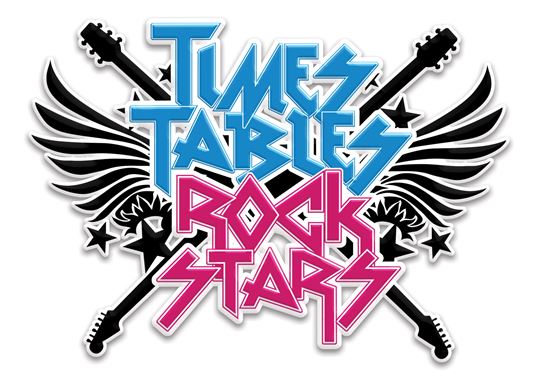Maths
Stanwell Fields Curriculum Intent
Throughout the school, our work is based on principles which are shared by all staff. It is our belief that we should:
-
develop and value the whole child and enable them to flourish as individuals.
-
give children the opportunity to learn about the wider world and their place within it.
-
ensure children have the knowledge and skills needed to achieve during the next stage of their education and in the future.
-
give children the opportunity to enjoy learning, flourish and achieve in a peaceful, supportive environment of Christian love and care and build respectful relationships.
To read more about out aims and curriculum intent, please visit our curriculum page.
Maths: Purpose of Study
Mathematics is a creative and highly interconnected discipline that has been developed over centuries, providing the solution to some of history’s most intriguing problems. It is essential to everyday life, critical to science, technology and engineering, and necessary for financial literacy and most forms of employment. A high-quality mathematics education therefore provides a foundation for understanding the world, the ability to reason mathematically, an appreciation of the beauty and power of mathematics, and a sense of enjoyment and curiosity about the subject.
Maths: Aims
The national curriculum for mathematics aims to ensure that all pupils:
- become fluent in the fundamentals of mathematics, including through varied and frequent practice with increasingly complex problems over time, so that pupils develop conceptual understanding and the ability to recall and apply knowledge rapidly and accurately
- reason mathematically by following a line of enquiry, conjecturing relationships and generalisations, and developing an argument, justification or proof using mathematical language
- can solve problems by applying their mathematics to a variety of routine and non-routine problems with increasing sophistication, including breaking down problems into a series of simpler steps and persevering in seeking solutions
Maths at Stanwell Fields
All children in Y1-6 have a daily maths lesson and additional short maths sessions as needed across the week. Our year group overviews and medium term plans use White Rose Maths as a basis and we have adapted to suit the needs of our children and school. We believe in giving all children the opportunity to reason and solve problems regularly in maths lessons and ensure work is differentiated to suit the needs of individual or groups of children so our lessons are inclusive.
Key Performance Indicators for Maths in Y1-6 can be found on our year group curriculum pages and here.
You can find out more about the learning each half term in our half termly class newsletters and overviews.
If you have any questions about the maths curriculum in your child's year group, please speak to the class teacher.
We follow the National Curriculum for mathematics. You can find a copy of the maths programme of study for key stages one and two below:
Times Tables Rockstars
We believe a good knowledge of times tables is vital to success and children are able to work on their times tables at school and at home using Times Tables Rockstars.
When it comes to times tables, speed AND accuracy are important – the more facts your child remembers, the easier it is for them to do harder calculations.
Times Table Rock Stars is a fun and challenging programme designed to help students master the times tables!
To be a Times Table Rock Star you need to answer any multiplication fact up to 12×12 in less than 3 seconds!
To find out more about how TT Rockstars works, how to login and what the different game modes are, please click on the image below.
Year 4 Multiplication Tables Check
Information taken from theschoolrun.com
The DfE says that the check is part of a focus on mastering numeracy, giving children the skills and knowledge they need for secondary school and beyond. The purpose of the MTC is to determine whether Y4 pupils can recall their multiplication tables fluently (being able to answer times tables questions accurately and quickly, without having to work out the answers).
The Multiplication Tables Check will be administered to Year 4 children in a three-week period starting in June each year.
Children will be tested using an on-screen check (on a computer or a tablet), where they will have to answer multiplication questions against the clock. The test will last no longer than 5 minutes. Their answers will be marked instantly. Children will have 6 seconds to answer each question in a series of 25.
Questions will be selected from the 121 number facts that make up the multiplication tables from 2 to 12, with a particular focus on the 6, 7, 8, 9 and 12 times tables as they are considered to be the most challenging. Each question will only appear once in any 25-question series, and children won't be asked to answer reversals of a question as part of the check (so if they've already answered 3 x 4 they won't be asked about 4 x 3).
Once the child has inputted their answer on the computer / device they are using, there will be a three-second pause before the next question appears. Children will be given the opportunity to practise answering questions in this format before the official check begins.
The six-second time limit per question has been decided on by the DfE because it should allow children enough time to demonstrate their recall of times tables without giving them the time to work out the answers to each question.
There will be no "pass mark" (expected standard threshold) and no child will "fail" the test. Multiplication facts will be the only things tested (there will be no testing of children's knowledge of division facts or problem-solving in the check).
How can parents help with times tables at home?
Because the National Curriculum for maths is so extensive, there is an expectation that parents will help their children learn their times tables at home and not rely on schools to bring them up to speed.
Some of the techniques you can use include:
- Practising times tables by rote.
- Asking your child multiplication questions out of order – such as ‘What’s 11x12? What’s 5x6?’
- Asking your child the related division facts: ‘What’s 8/4? What’s 9/3?’
- Using arrays to help your child memorise times tables – you can use fun objects like Smarties or Lego bricks to make it more entertaining.
- Giving your child word problems to test their skills, like ‘If Peter has 800ml of orange juice and needs to share it between four friends, how much can they each have?’
- Using TT Rickstars and games like TheSchoolRun’s multiplication games to build speed.
- Singing times tables using songs like Percy Parker.



